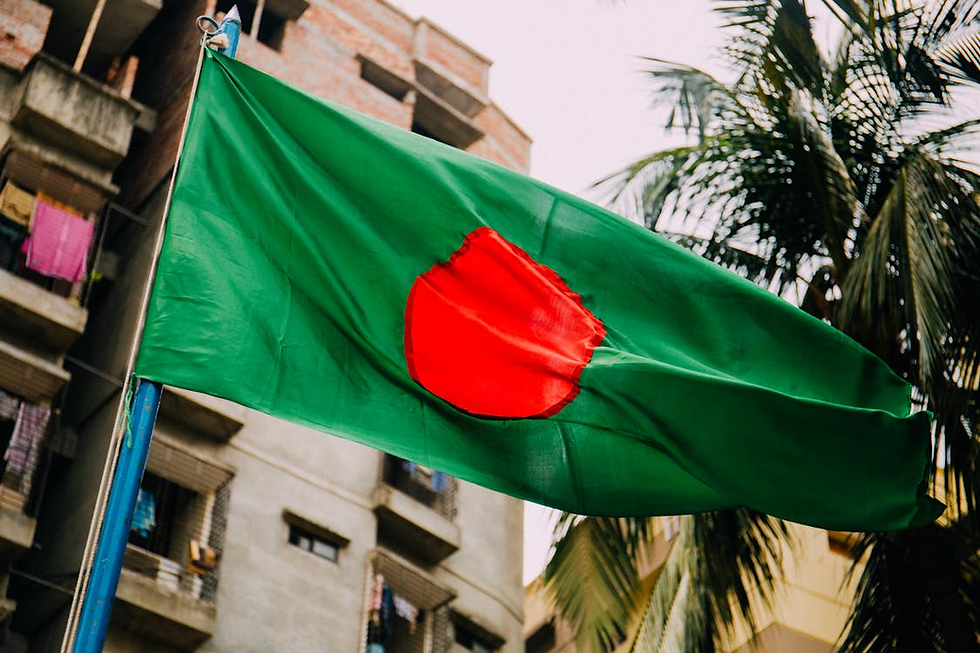India Witnesses "The Largest Protest in Human History"
- Ekamjot Pooni
- Dec 14, 2020
- 4 min read
Updated: Dec 23, 2024
Ten of thousands of farmers in India have marched to the capital to protest new agriculture laws they say could ruin their livelihoods – on November 26, about 250 million people participated in a 24-hour general strike in unity. This movement has gained massive attention worldwide, forcing the government to meet with protesters where they are: a first in the six years of Prime Minister Narendra Modi’s rule.
Marchers face city limits by police, who used tear gas and water cannons against protesters to prevent them from entering the city. This force came after police officers were beaten with stones, and damage was made to public property.

Farmers from nearby states of Punjab, Haryana, and Uttar Pradesh began arriving 2 weeks ago, since then blockading main highways in New Delhi and setting up temporary camps. Some have slept on their tractors and on the road, and many places of worship offered protesters food.
More than half of India’s workforce is involved in farming, and agriculture is still the largest source of income for most Indians. Yet, farmers, even after feeding almost all of the nation and providing a great backbone for India’s economy, face a constant struggle against various forms of brutality. Years of dealing with oppressive government policy, exploitation from landlords, and climate change have left farmers in India in their worst condition yet. Farmers have been left fully impoverished by debts, losses on marketed goods, and extreme weather devastation.
So, when the government passed on the three agricultural reform laws in September that could potentially “eliminate the safety cushion of MSP” and leave farmers vulnerable to big corporations, land workers decided they couldn’t tolerate any more suffering. The Minimum Support Price (MSP) is the minimum price paid by the government when it obtains any crop from farmers; the system was considered crucial to guaranteeing farmers' financial security.
The government says these new laws will give farmers more autonomy and make the sector more efficient, allowing them to set their prices and boost production through private investments, such as supermarket chains.
Modi’s new laws dismantle the way farmers had to sell their goods, allowing them to sell to anyone for any price. These new laws support farmers in having more freedom, like selling directly to buyers and selling to other states. The PM said increasing market competition would help farmers fulfil their demands for higher income and award them new rights and opportunities.
“The farmers should get the advantage of a big and comprehensive market which opens our country to global markets,” Modi said, as farmers protested in New Delhi. As parts of the country’s economy become modernized, he hopes it will engage private investment into the agricultural industry.
However, farmers are not convinced. They say what these new laws really do is take away the remaining support granted to farmers, deregulate crop prices, and devastate their earnings. This will make it easier for corporations to exploit agricultural workers with no help and no way of selling goods in a way that provides subsistence or profit.
“We will lose our lands; we will lose our income if you let big business decide prices and buy crops. We don’t trust big business. Free markets work in countries with less corruption and more regulation. It can’t work for us here,” one farmer told the BBC.
The new rules could help big companies plunge prices. If the demand is there, farmers could sell crops at high prices. However, they could struggle to meet the minimum price if there is more supply than demand. Removing the price guarantees will make life more difficult for farmers.
“We don’t even get the minimum support price that is presently declared – removing these protections and making it easier for corporates to enter will completely buy us out,” said Mukut Singh, a farmer in Uttar Pradesh.
Some farmers like Anmol Singh believe the new laws are part of a larger plan to hand over the farmers’ land to big corporations and make them landless.
“Modi wants the poor farmer to die of hunger so that he can fill the stomachs of his rich friends,” he told The Associated Press. “We are fighting his brutal decrees peacefully.”
Farmers are demanding a full retraction of the laws, and are willing to stay on the outskirts of the capital for as long as it takes to make it happen. They are also asking the parliament for other particular demands to keep small farms competitive in the marketplace. The government has reportedly agreed to work on these demands, regulations and include them within the new rules. However, apart from that, communication between the government and the farmers has frequently paused and restarted, creating a stalemate.
Union Agricultural Minister Narendra Singh Tomar has also appeared for a meeting with a small group of farmers, who were mostly supporters of the ruling Bharatiya Janata Party and in agreement with the new law. By ignoring the majority who are staunchly opposed to the recent changes, no progress has been made in breaking the gridlock.

_edited.png)



Comments